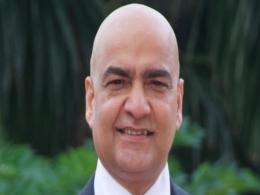Infrastructural changes such as redesigning the existing curriculum in schools and engaging well-informed teachers as facilitators can disrupt the K-12 segment in the country, said panellists at News Corp VCCircle's Education Investment Summit 2018 on Thursday.
A panel comprising Oxford University Press India managing director V Sivaramakrishnan, Narayana Group of Educational Institutions executive director Puneet Kothapa, Eupheus Learning co-founder Amit Kapoor and Indian School of Finance Company CEO Neeraj Sharma engaged in a discussion on the theme ‘Disrupting K12’ at the summit. The panel was moderated by Smita Sircar of Grey Matters Capital.
The panellists said that schools, both government and private, should aim for 21st century skills.
Sivaramkrishnan said schools and teachers must not confine their teaching to basic listening, reading and speaking skills. “Social skills such as collaborative working and ethics are some of the lessons that can be imparted. Is our K-12 system feeding that? That’s the question,” he said.
Kothapa said schools should focus more on ways that ensure employability of the students.
The panellists discussed a plethora of problems ranging from a lack of cash flow to operate schools in rural areas to a lack of teachers who keep themselves abreast of new-age technologies and learning methods.
Kothapa said that existing curriculum was not relevant. “Redesigning curriculum is not an easy task as it has to go through several policy changes and the stakeholders involved,” he said, adding that the teachers themselves admit they were lagging behind in terms of knowledge.
He added that the teachers should supplement what is there already in the existing infrastructure.
Sivaramakrishnan said the state boards of education should have the freedom to develop content that is best suited to the learners. “The teachers and the institutions also have the right to decide how to take and decide content,” he said.
Sharma of ISFC said that challenges are more acute in rural India, which accounts for a majority of the schools in the country. The basic problem there is the lack of infrastructure, he said.
Sharma pointed out that schools suffer cash flow problems as many people fail to pay fees due to poor socio-economic status.
“Due to cash crunch, schools can’t hire good teachers or solve other infrastructural problems,” he said, adding that teaching is the least preferable job these days.
Kapoor said that students are somewhat outshining their teachers with the level of knowledge they get with the aid of technology.
“A teacher should become more of a facilitator or guide with technology enabling the change. He should see that a kid is more engaged in school,” he said.
Sircar, however, pointed that use of technology has led to rising education expenses and unemployment. “Great levels of learning are not happening in the K-12 space. On the other hand, automation has led to escalating costs and affects human employability,” she said.







